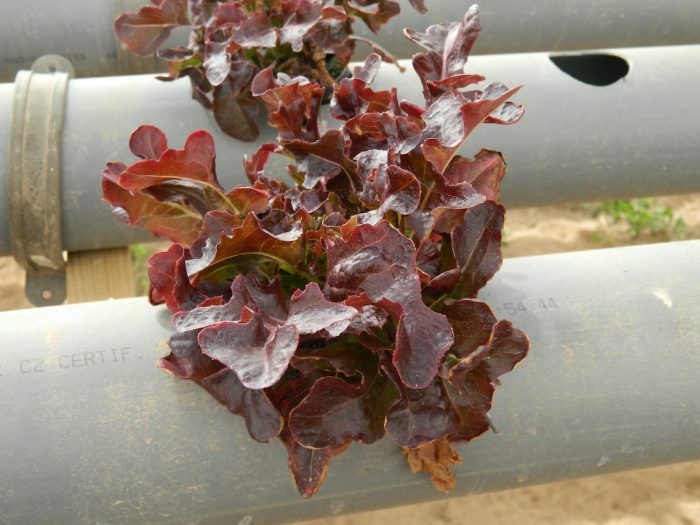RIO DE JANEIRO, BRAZIL – In recent years, the Universidad Arturo Prat (UNAP) has sought to promote the development of the territories with various research, innovation, and entrepreneurship projects that help to strengthen initiatives of different kinds at the regional level in Chile.
In this sense, the director of Innovation and Entrepreneurship of the UNAP, Raúl Zuñiga, indicates that “the emphasis of innovation is mainly in the Tarapacá Region, where it is defined as a concept as a university of the sea and the desert and in the current times in the territory. Thus emblematic projects were developed that are now showing excellent results”.
Read also: Check out our coverage on Chile

AGRICULTURE AND WATER
In the northern part of the country, the initiative “Desert agriculture for the development of northern Chile” is being carried out, which aims to work with farmers in the area to strengthen the production of various crop alternatives such as saffron in the Pampa del Tamarugal, date palms or ornamental plants in the coastal desert.
This aims to convert small farmers in the desert areas into nurseries in Taltal or dedicated to the production of hydroponic crops in the Chiu Chiu area and developing a dating industry in the desert oases, among some of the production alternatives.
Likewise, in the northern macro-zone, work has been done on “Diagnóstico Tratamiento Intrapredial de aguas para riego en Camarones”, which is financed by the Comisión Nacional de Riego, while the Fondo de Innovación a la Competitividad de Antofagasta, finances the use of waste water in crops; both projects focus on improving the chemical quality of water to increase the supply of crops.
In conjunction with the above, a groundwater community is created among Pica lemon, mango, and guava producers to help their production.
On the other hand, one of the most emblematic projects currently, according to the academic, is “Vino del Desierto, contributing to the territorial development of Tarapacá”, with which an identity wine of the area was created, which has helped to promote not only the commercialization and creation of a unique product but also the strengthening of wine tourism and circular economy with the creation of “La Ruta del Vino del Desierto”, generating a unique experience for visitors.
“It is the one that has more impact and diffusion in the community, because it started many years ago, went through all the phases to the fullest and is projected in the future to form an industry with respect to this, with a wine of the highest quality”, emphasizes Zúñiga.
SOCIAL IMPACT
Among the works that have had a tremendous social impact due to their link with health is “Habitat: Tarapacá is projected in Research on Extreme Environments”, which studies the feasibility of installing advanced research centers in Tarapacá, which, given the geographic similarities, can be effective for analyzing habitability on other planets.
In the same field of work, it is worth mentioning the recent awarding of the Desert Agriculture Consortium, in which UNAP participates together with other institutions.
Continuing along the same lines, the project “High Altitude Medicine III: Validation of Biomarkers and Mitigators” aims to establish strategies for prevention, mitigation, and treatment for workers exposed to high altitudes, especially in mining companies.
The initiative is developing a prototype APP for tourists and high-altitude workers to provide knowledge about acute mountain sickness and how to prevent it.
“It is something unique, which we took more than 20 years ago because here is the mining industry and there are many workers who require it, and most of them are above 2500 meters of altitude at sea level, so there are many people who suffer health problems due to intermittency,” says the director.
Another initiative that is currently being carried out in the Tarapacá and Araucanía regions is the collaboration and joint work for the empowerment of indigenous women and entrepreneurs who participate in the UN Women’s Indigenous Women’s Program, which is supported by Teck, who receive training, support and advice for the promotion of their businesses, always bearing in mind their cultural heritage.
Related to the ecosystem, the innovation “Fish farming in northern Chile” seeks to create technologies for the repopulation of local fish such as Cabrilla, Mulatas, Achas, Pejeperros, and Apañados among others, as they are species of high commercial value and demanded by national consumers that have been decreasing and disappearing over time.
Finally, “Engineering 2030, training the engineers of the future”, financed by Ci, the Regional Government of Tarapacá, and the UNAP, has the mission of training innovative professionals to contribute to industry and entrepreneurship with a focus on the circular economy, in the technological transformations of the productive regional engine, in the design of scale models through the use of software and process automation.
Regarding the future of the general program, Raúl Zúñiga emphasizes that “the university is committed to this line of work in innovation and we have a very high differentiation.
This will last over time. The significant challenges are to continue positioning and strengthening ourselves in the desert, where there are tremendous opportunities, and to adapt to the different technologies appearing”.

